QNAP TS-328 3-Bay NAS Management
Getting our QNAP TS-328 up and running is typical for QNAP NAS boxes. QNAP provides an excellent YouTube channel which covers setting up and running QNAP devices.
After going through the setup procedure which only takes a few minutes, we end up at the QTS desktop.
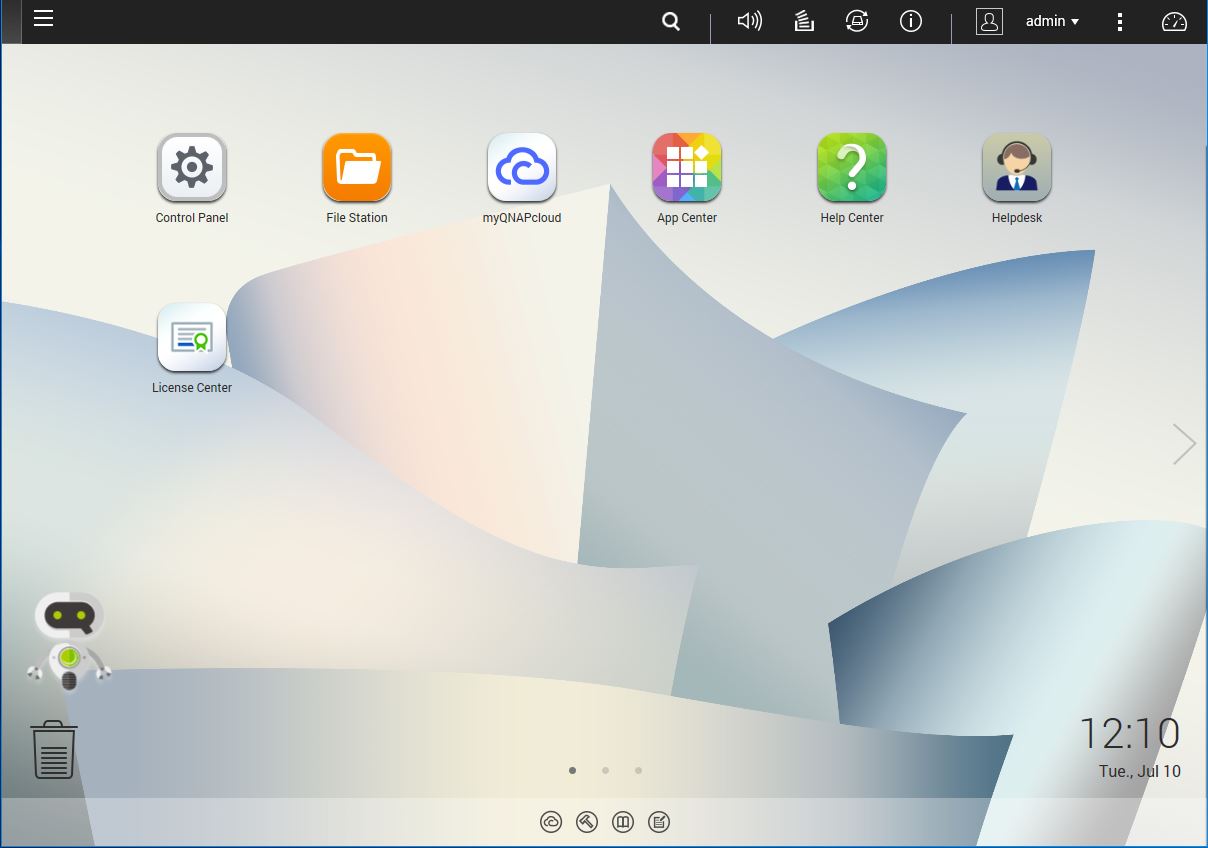
When setting up our QNAP TS-328, it will default to RAID 5 with an option to encrypt the volume. Since the primary reason one would choose the QNAP TS-328 over a 2-bay NAS is to get access to RAID 5, our focus will be on RAID 5 over RAID 0/1.
Testing the QNAP TS-328 Performance
In the real world, the QNAP TS-328 is expected to be a SOHO or SMB edge device for redundant network storage. 1GbE and unmanaged switches are the kings of this space although we see a gradual uptick in 10GbE interest. In this segment, performance is primarily measured by how long users wait to copy data to and from the device over a single 1GbE link. We ran our tests using both normal RAID 5 and encrypted RAID 5.
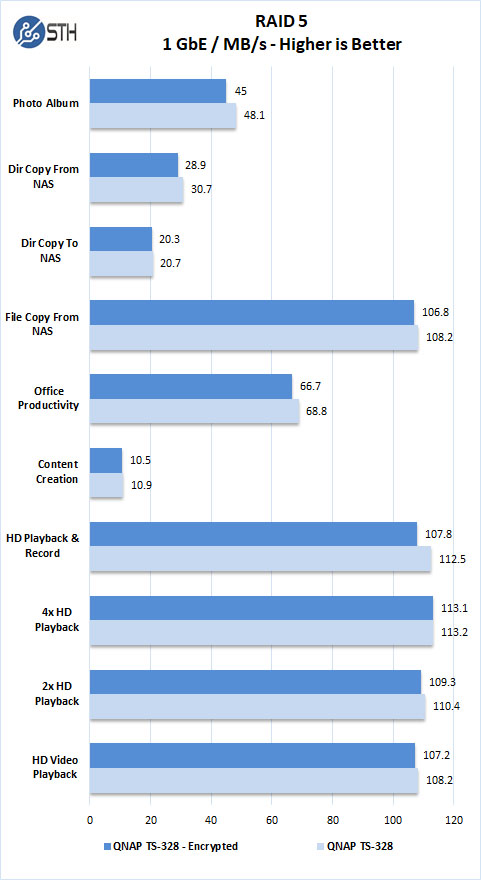
The QNAP TS-328 shows excellent performance results with only taking a slight hit when using encryption. Performance is very close to 4-bay NAS’s we have tested and a step up from 2-bay units.
QNAP QTS Software Features
QNAP NAS’s all using QNAP’s QTS operating system, operation across these platforms is identical with only minor differences.
Downloadable software for the TS-328 includes Download Station for HTTP, BT, FTP and NZB downloads, Photo Station, Video Station, and Music Station to name just a few.
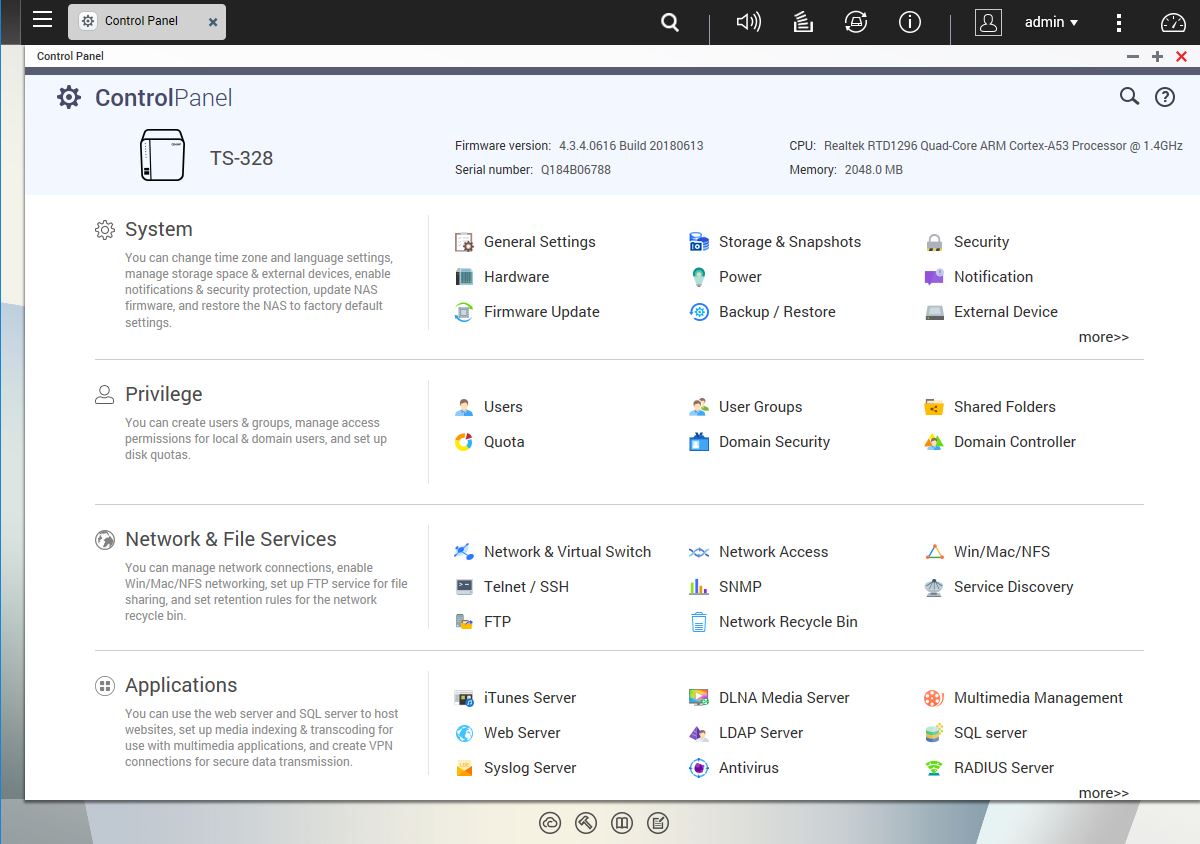
The QTS ControlPanel is the heart of the QTS operating system and where you can find options for running your TS-328.
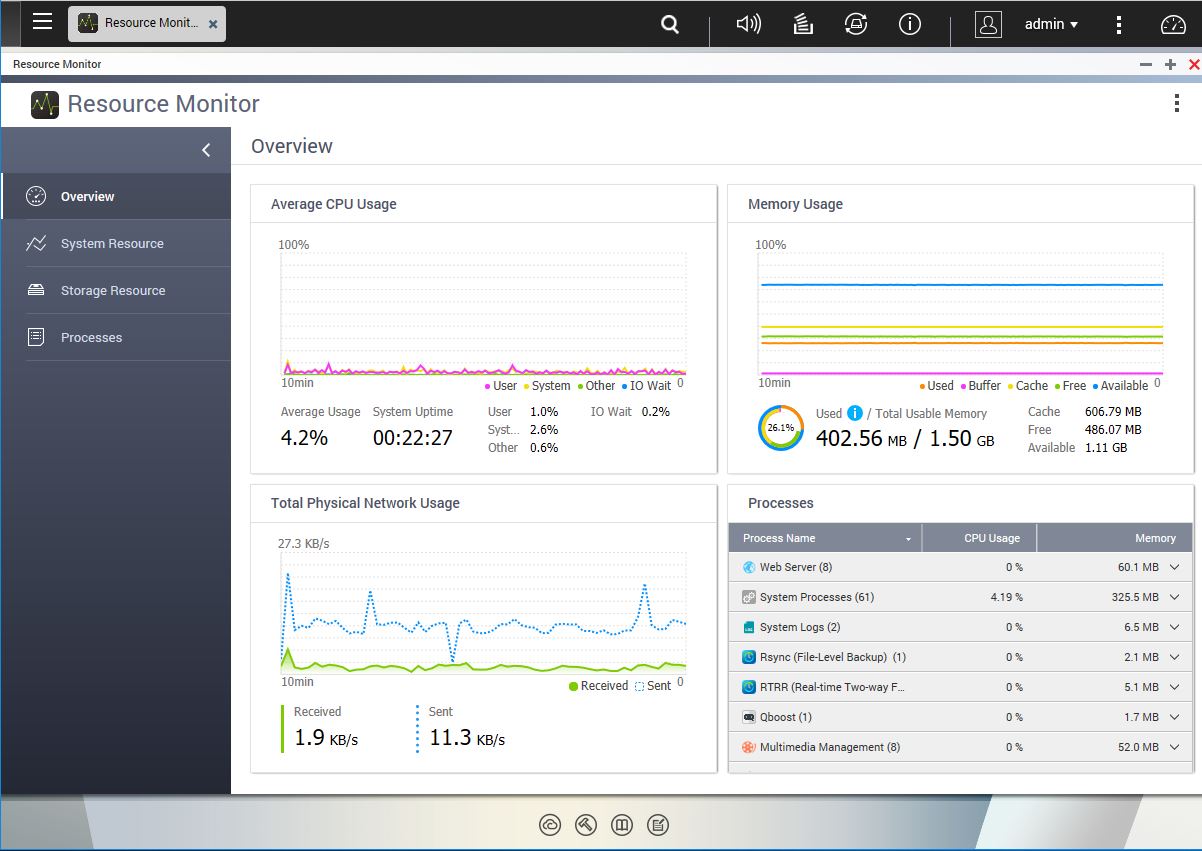
QTS Resource Monitor is what we generally have open during day to day operation; it shows a great deal of information about what your NAS is doing at any given moment.
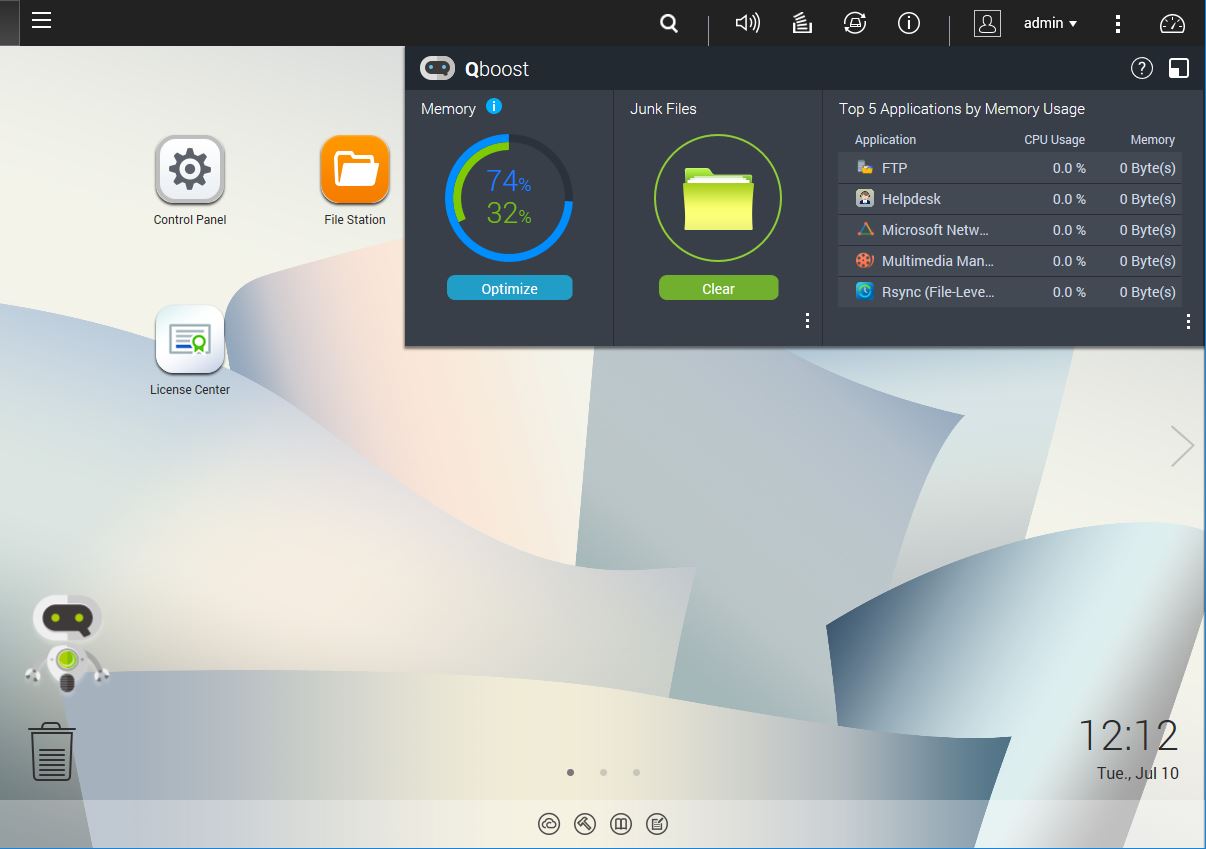
We do like the performance tabs as we prefer to monitor what is going on with our boxes. The Qboost screen includes two buttons that allow Memory Optimization and clearing junk files for the system.
Software in this space is one of the more vibrant development spaces. QNAP is continuously improving its software stack so the features we see today are likely to be improved upon over the life of the product.
Final Words
Taking the jump from a 2-bay NAS to the new QNAP TS-328 3-bay NAS is a no-brainer as far as we are concerned. Using RAID 5 allows for one of the drives to fail and still operate and rebuild as a replacement enters service. Even if you are not concerned with RAID 5, the QNAP TS-328 comes with one drive tray that can be used to install a 2.5” SSD as a cache drive for workloads that can benefit from this instead. These are capabilities beyond a typical 2-bay NAS.
Performance of the TS-328 is also excellent; it stacks up well to two and four-bay NAS’s. The Realtek RTD1296 quad-core 1.4 GHz processor keeps up with system demands quite well and provides the capability for encryption at little to no performance impact. It will handle H.264/H.265 hardware decoding, convert videos and play smoothly on mobile devices. We do find the installed 2GB DDR4 memory capacity to be adequate for a NAS in this class; it is not upgradeable though.
Drawbacks to the TS-328 are Plex, and Virtual Machines are not available as the Realtek RTD1296 does not support these features. There is an unofficial Plex version working on the Realtek RTD1296, but that is different than out-of-the-box support.
Overall we like the QNAP TS-328 as performance is excellent, and the value proposition is hard to ignore. If you are in the market for a 2-bay NAS, you should look at the superb package QNAP has put together with the TS-328.

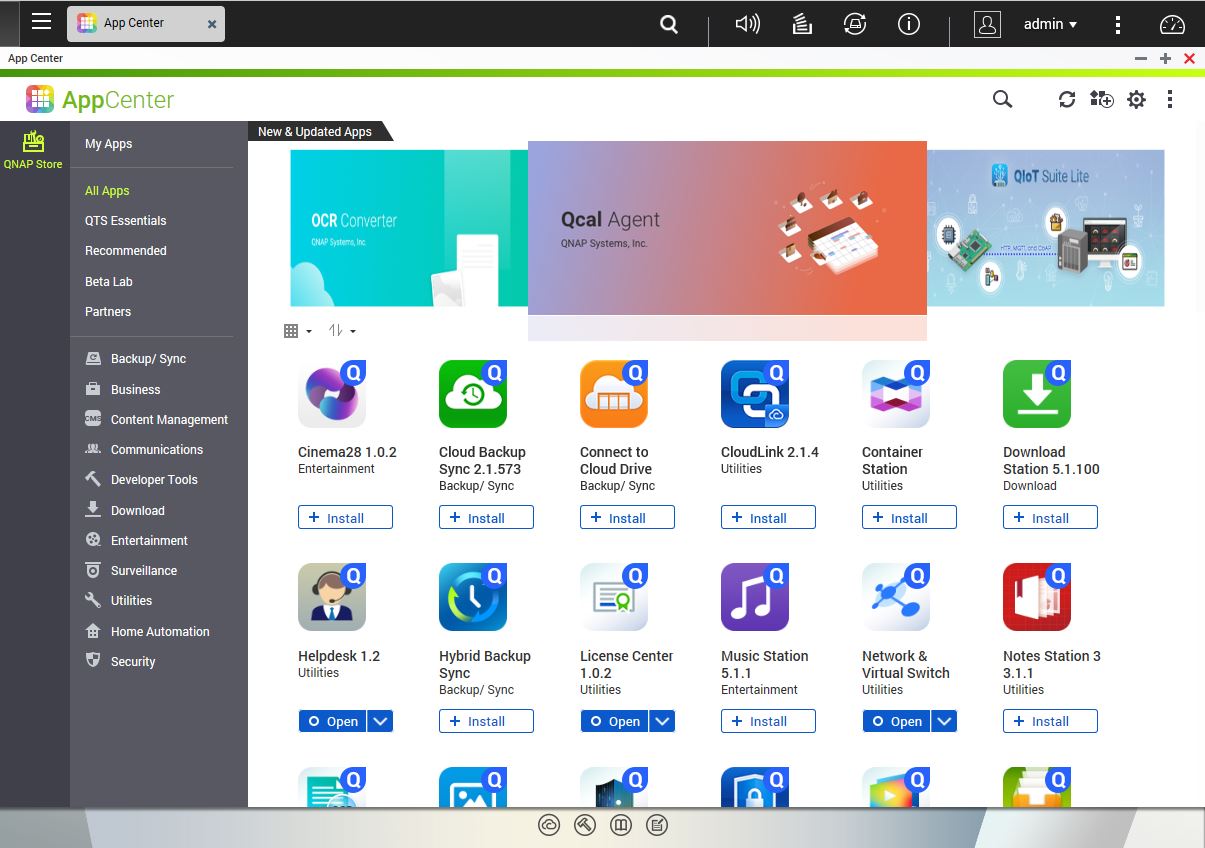
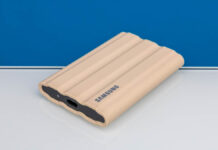
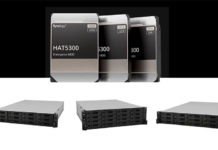
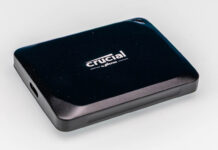
That first chart on p1 is really the article summary. Buy this. Get more capacity cheaper. Profit.
Of course RAID-5 has it’s issues with write performance, not that this is really a problem over a slow network. I still wonder though what happens when you pull the plug while writing lots of small files.
3-bay is good for supporting RAID5, but in many cases the 4-bay version and terabyte price is even cheaper.
TS-431P2 NAS: 2.484 DKK
WD Red 4 TB, 4x: 3.812 DKK
12 TB usable: 6.296 DKK
TS-328 NAS: 2.146 DKK
WD Red 6 TB, 3x: 4.491 DKK
12 TB usable: 6.637 DKK
As the Realtek RTD1296 SOC only provides 2 SATA how is the 3rd drive configured/connected?
I think the support of Btrfs or ZFS is more important RAID 5.
Assuming most people don’t have a need for more than 2 or 4TB NAS, why hasn’t more 2.5″ NAS come out?
I found the design a bit old school to me but a 3 bay that’s quite new.